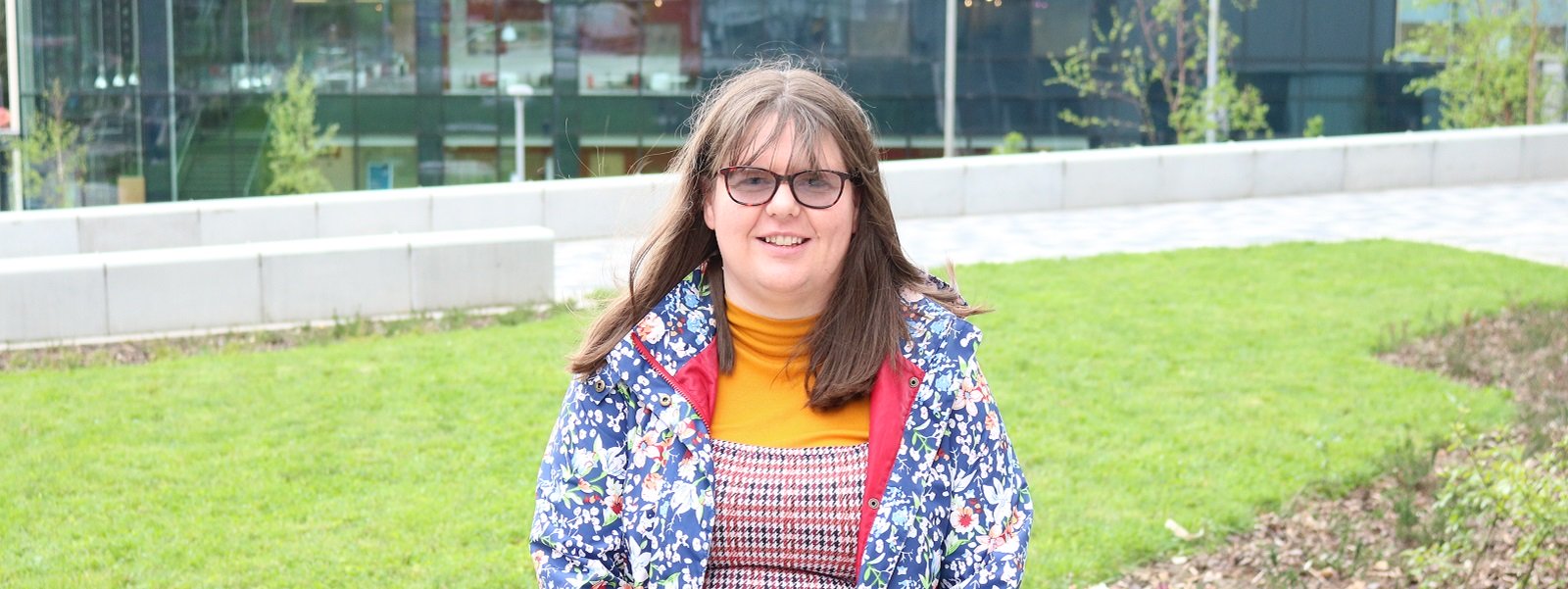As a very mature student, I returned to full time education in 2013, shortly after my son was born and after 10 years working in Health and Social Care. I completed a BSc in Information Technology at UWS and briefly worked during my studies as a web developer, but I was drawn to education after doing some work with the widening participation team at UWS in the third year of my degree – I really enjoyed working with students and learning about their lives. As such, I chose not to go on to do my honours year as I was accepted onto a postgraduate education course at the University of Glasgow. It was during my time at Glasgow that a tutor suggested to me that I might want to follow an academic route rather than becoming a teacher as I had planned so, after a lot of research, consideration, and a recommendation regarding the quality research in education being undertaken at Strathclyde, I chose to embark on the MSc Education Studies course in September 2018 and, looking back over the past few months, I am very glad that I did.
I came into this course with an idea of what education is and I expected the course to be similar to my previous postgraduate study. However, it has been a really enlightening experience and nothing at all as I expected. As students, we have been encouraged to think of education beyond the formal system with which we are all familiar. I have personally enjoyed the philosophical input as it has given me the opportunity to explore other concepts in relation to the field of education (for example, my dissertation this year compares education with neural enhancement technology).
My engagement with this course has helped to broaden my understanding of, and develop my skills in, academic research. It has introduced me to an entirely new discipline in conceptual research and has encouraged the growth of critical thinking and writing skills. I would suggest that this course could be both an invaluable precursor for those considering working in education (not only as teachers), and a means for those already working in the field to develop, or indeed change, the ways in which they think of education.
As with any course of study, it has not been without its challenges. The financial support offered to Scottish postgraduate students amounts to very little, however I have been lucky enough to continue working for a local college while studying. Juggling my duties as a parent, employee and student has been difficult at times, but very rewarding. I have found the lecturing staff to be most supportive and I know that they have helped my fellow students through difficult times (I have been fortunate enough to have coped well). I can also recommend the work of the Disability Service for the support they have given me as an autistic student. I have been able to access adjustments on my terms, and I enjoy the level of confidentiality offered by the service. It means that I am always viewed as a student first and only need to disclose when I feel comfortable enough to do so. It is even more encouraging that the staff to whom I have chosen to disclose have not made it a big deal – this is refreshing as I have faced some discrimination in the past and I don’t enjoy being treated differently.
Thanks to the positive experience I have had this year, and thanks to the encouragement of my supervisor, I have applied to study a PhD in Education. I believe I may have found my niche in conceptual research and it would be my hope to continue on the path to a career in academia.

